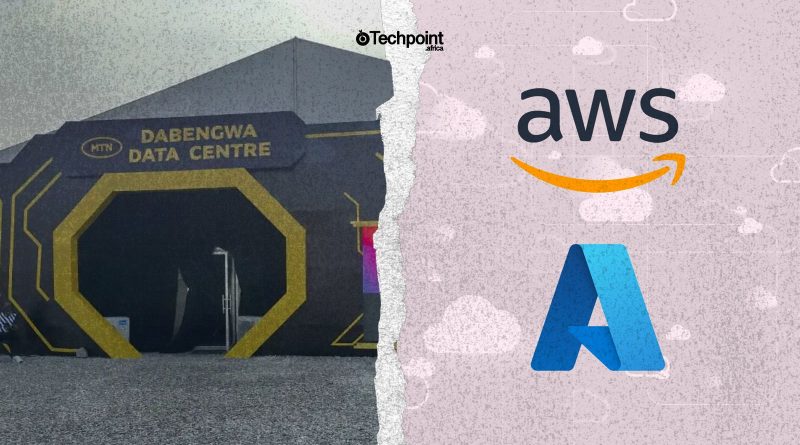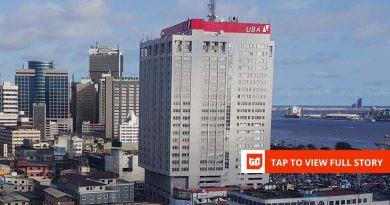Why MTN Nigeria thinks it can take on AWS, Azure, Google
MTN executives declared at a press briefing that its newly launched data centre, the Dabengwa Data Centre, and cloud infrastructure offer services comparable to those of hyperscalers such as Amazon Web Services (AWS), Microsoft Azure, and Google Cloud.
This bold claim has been met with a mix of excitement and scepticism. However, the most common reaction from Nigerians on X (formerly Twitter) has centred on doubts about MTN’s track record. Many believe the company’s history of inefficiency in its connectivity business could hamper its ambitions to rival global cloud giants.
Reactions ranged from criticism of what some called misplaced priorities to complaints about MTN’s poor USSD and 5G performance. A few people, however, saw the development as a win for Africa.
MTN’s Chief Enterprise Business Officer, Lynda Saint-Nwafor, also shares this view. Speaking with conviction and enthusiasm, she and other members of MTN’s executive team explained why they believe the company is ready to take on the hyperscale behemoths.
MTN’s data centre is a big deal
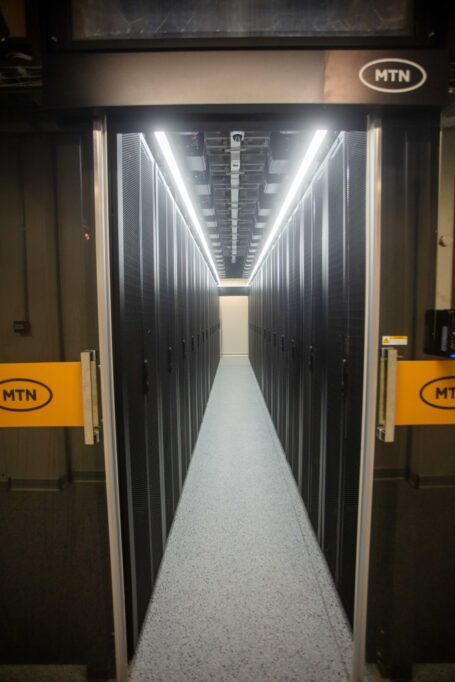
MTN’s Dabengwa Data Centre is a significant development not just for Nigeria, but for Africa’s tech ecosystem. For the first time, a serious step is being taken to ensure African data is housed on the continent. Unsurprisingly, data sovereignty has become a major marketing theme for MTN Nigeria since the launch of the centre.
But beyond marketing, MTN CEO Karl Toriola emphasised that hosting data in Nigeria also strengthens security. “Hosting Nigerian businesses’ data in Nigeria is protecting them against exposure to sovereign data risks in foreign states,” he told journalists at the press briefing.
In addition to improving data control, a major data centre like Dabengwa brings broader economic benefits. For instance, hundreds of workers were hired during the construction phase, and many more will be required to maintain operations going forward.
However, the most notable economic impact could be a reduction in the vast amounts Nigeria currently spends on public cloud services. According to Saint-Nwafor, hyperscalers such as AWS, Microsoft Azure, and Google Cloud take between $600 million and $800 million out of Nigeria annually.
In other words, Nigeria is not only storing its data abroad, but it’s also spending hundreds of millions of dollars to do so. Even government ministries and agencies often rely on offshore data storage, thereby placing sensitive national information under the jurisdiction of a foreign country.
Interestingly, the Abia State Government has signed on as one of the first clients to adopt MTN’s new infrastructure. Announced on the day of the launch, MTN confirmed that the data centre and cloud services are ready to begin operating. But the big question remains: is MTN prepared to take market share from the hyperscalers?
What’s inside MTN’s data centre?
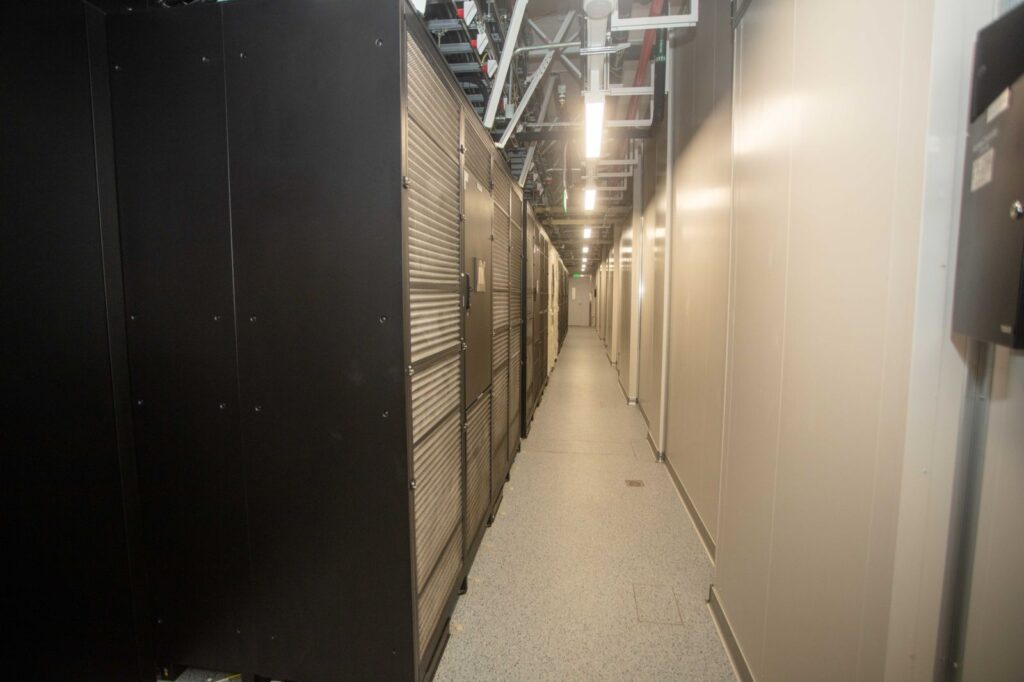
The Dabengwa facility is built from 96 container-like units that were constructed off-site and assembled in Lagos. This building method enables MTN to scale quickly by adding new modules as demand grows — much like expanding a Lego set — rather than building a new facility from scratch.
The centre currently runs on 4.5 megawatts (MW) of power, enough to support around 780 server racks across three floors. To put it simply, this means it can host thousands of virtual machines and handle the computing needs of banks, startups, fintechs, and even government institutions. MTN plans to double this capacity to 9 MW, with potential expansion to 14–20 MW in later phases.
A major selling point is its Tier III certification, which guarantees a high level of uptime. The centre is equipped with redundant systems, meaning even if one power or cooling unit fails, operations can continue uninterrupted. This is particularly critical for businesses that operate 24/7 platforms, such as mobile banking, cloud applications, or e-commerce services.
It also features backup generators and dual transformers, ensuring a reliable power supply even in the event of a national grid outage.
Beyond the physical infrastructure, MTN has developed a self-service cloud platform. This enables users, whether startups, developers, or IT teams, to log in and deploy virtual servers, launch apps, and manage storage independently without needing to go through MTN’s technical team for every change.
This type of self-orchestration mirrors what developers have come to expect from platforms like AWS and Azure and could make MTN’s cloud more appealing to those already familiar with global cloud environments.
How does Dabengwa compare to AWS? Specs vs promises
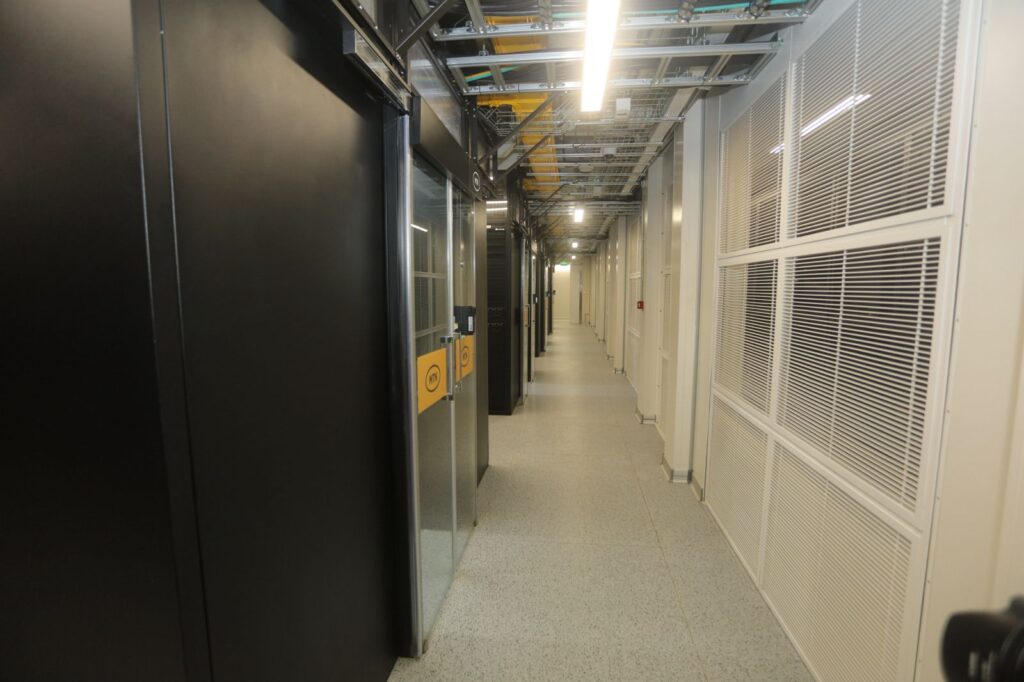
AWS is a global behemoth in cloud computing. Having pioneered the industry in 2006, it now commands around 34% of the global cloud services market. As of 2014, AWS reportedly operated over 1.4 million servers across more than 100 data centres worldwide.
By contrast, MTN Nigeria currently has only one other data centre, though MTN Group owns 50 data centres across its markets, according to TelcoTitans.
In Africa, AWS operates only in one region: Africa (Cape Town). Despite being the only AWS region on the continent, it is a highly capable and mature setup. Directly comparing this to MTN’s Sifiso Dabengwa Data Centre is difficult, however, as MTN has shared limited technical information about its facility.
Details such as service level agreement (SLA) uptime guarantees, specific pricing, and developer support tools remain unavailable for MTN. In contrast, AWS publishes extensive documentation and offers an SLA of 99.99% uptime. We also know that startups like Bento spend upwards of ₦6 million ($3,814) monthly on AWS services.
While MTN has not published its SLA uptime, it is fair to assume that its pricing will be significantly cheaper, especially for Nigerian businesses. When asked how MTN intends to compete now that AWS accepts naira payments, Saint-Nwafor clarified that there’s a crucial difference between paying in naira and pricing in naira.
She also highlighted MTN’s latency advantage, noting that its data centre is physically closer to Nigerian businesses and can therefore deliver faster performance.
Still, in terms of infrastructure scale, AWS clearly leads. MTN’s data centre has a current power capacity of 4.5 MW, with plans to scale up to 9 MW. In contrast, AWS and Microsoft Azure operate significantly larger facilities in South Africa, which is currently the closest hyperscaler region to Nigeria. While neither company discloses exact figures, industry estimates suggest that their data centres run on 20 to 30 MW per facility, five to six times larger than MTN’s present capacity.
With the information currently available, AWS’s African data centre is more powerful and mature than MTN’s Dabengwa Data Centre — but not overwhelmingly so. The bigger concern among Nigerian developers and businesses is whether MTN’s history of unreliable mobile and broadband service will translate into similar issues in the cloud space.
That concern is valid, but it’s also worth noting that telecom networks and cloud data centres are fundamentally different infrastructures. MTN’s mobile network depends on a vast mesh of base stations, towers, and user traffic, all of which are vulnerable to weather, power outages, and even vandalism. Cloud infrastructure, on the other hand, is centralised, built in secure facilities, and designed for high reliability and redundancy.
MTN is not new to big data
Though MTN Nigeria may be new to cloud infrastructure, it is no stranger to managing large-scale data. According to its Chief Information Officer, Shoyinka Shodunke, MTN currently handles 14 petabytes (PB) of data online alone, making it the largest data holder among Nigerian companies.
To put that into perspective, 1 PB of data is roughly the equivalent of 13.3 years of continuous high-definition video. That means MTN handles the equivalent of over 186 years of HD video worth of data daily.
Ultimately, whether the Dabengwa Data Centre can truly take market share from the likes of AWS and Azure will depend on how well it performs in real-world conditions. Uptime, developer experience, support, and transparency will all be tested as more businesses come on board.
But one thing is certain: the launch of a world-class, locally owned cloud facility is a significant win, not just for Nigeria but for Africa’s digital future.

